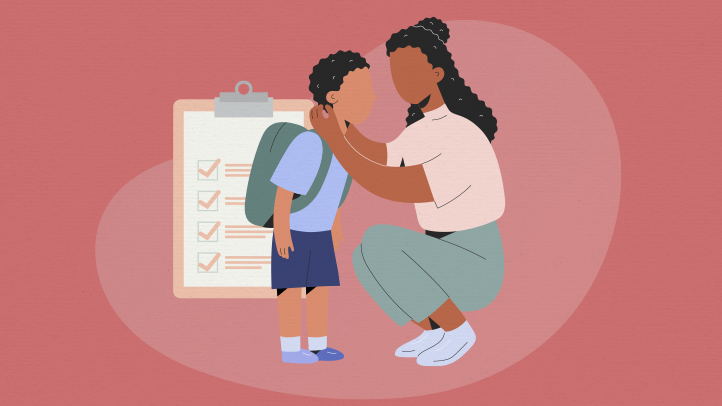If you are a parent of a child with ADHD, then you know that it can be difficult to help them succeed in school and life. There are many different strategies that you can use to help your child, but it can be tough to know which ones will work best for your family. In this blog post, we will discuss some of the best ADHD strategies for parents that can help your child succeed. We will also provide tips for dealing with common challenges that parents face when raising an ADHD child.
Contents
- 1 Defining ADHD
- 2 Symptoms of ADHD
- 3 Common Challenges For Children With ADHD
- 4 ADHD Strategies For Parents
- 4.1 Learn about the condition
- 4.2 Establish routines
- 4.3 Encourage positive behavior
- 4.4 Use visual aids
- 4.5 Set limits
- 4.6 Encouraging a healthy lifestyle
- 4.7 Find ways to channel excess energy
- 4.8 Have realistic expectations
- 4.9 Keep in touch with teachers and peers
- 4.10 Help them stay organized
- 4.11 Break down tasks into smaller parts
- 4.12 Eliminate distractions
- 4.13 Provide structure
- 4.14 Give them choices
- 4.15 Keep Things Interesting
- 4.16 Take things one day at a time
- 4.17 Provide Positive Reinforcements
- 4.18 Make sure that they are challenged
- 4.19 Avoid comparisons
- 4.20 Provide emotional support
- 4.21 Create a support system
- 4.22 Join support groups
- 5 Other Treatment Options
- 6 Conclusion
Defining ADHD
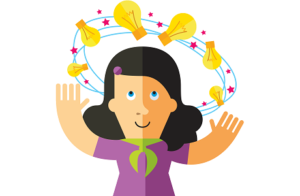
Attention-deficit/hyperactivity disorder (ADHD) is a brain disorder that affects how people think and act. It is usually diagnosed in children, but it can also affect adults. People with ADHD have trouble paying attention, controlling their impulses, and keeping still.
ADHD also affects a person’s ability to control their emotions. This can lead to outbursts of anger, frustration, and sadness. People with ADHD often have low self-esteem and may feel like they are not good enough or that they cannot do anything right.
Symptoms of ADHD
The symptoms of ADHD can vary from person to person and can range from mild to severe. The most common symptoms include:
- Difficulty paying attention
- Easily distracted
- Trouble completing tasks
- Frequently forgetting things
- Hyperactivity
- Impulsivity
- Acting without thinking first
If you notice any of these symptoms in yourself or your child, then it is important to talk to a doctor. . A doctor can diagnose ADHD through a combination of medical history, physical exam, and psychological testing.
Common Challenges For Children With ADHD
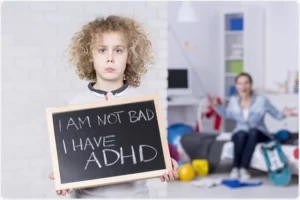
Parents of children with ADHD often face challenges such as meltdowns, oppositional behavior, and difficulty paying attention. While these challenges can be difficult to deal with, some strategies can help.
Some common challenges and strategies to deal with them include:
- Difficulty socializing
- Trouble completing tasks
- Meltdowns
- Oppositional behavior
- Difficulty paying attention
ADHD Strategies For Parents
With any chronic condition, parents must take care of themselves as well. It’s important to maintain a healthy and supportive relationship to provide a stable foundation for your family. There are many different strategies that parents can use to help their child with ADHD succeed. Some of the most effective strategies include:
Learn about the condition
There are plenty of resources available that can help you learn about ADHD. This will allow you to better understand your child’s condition and how it affects them. It will also give you some ideas of different strategies that you can use to help your child.
There are three primary types of ADHD
- Inattentive type: This type is also known as attention deficit disorder (ADD). People with this type have trouble paying attention, but they do not have problems with hyperactivity or impulsivity.
- Hyperactive-impulsive type: This type is also known as hyperactive disorder (HD). People of this type are always moving and often act without thinking first. They may also have trouble paying attention.
- Combined type: This is the most common type of ADHD. People with this type have problems with both inattention and hyperactivity/impulsivity.
Establish routines
A routine can help provide structure for your child. It can also help them know what is expected of them and when they need to complete tasks. Having a routine can make it easier for your child to stay on track and avoid meltdowns.
Encourage positive behavior
It is important to encourage positive behavior in children with ADHD. This can be done by rewarding good behavior, praise, or providing other reinforcement. Encouraging positive behavior will help your child feel good about themselves and may help reduce oppositional behavior.
Use visual aids
Visual aids can be helpful for children with ADHD. They can provide a way for your child to see what is expected of them and help them stay on track. Visual aids can include things like charts, lists, or even pictures.
Set limits
It is important to set limits for children with ADHD. This will help them know what is expected of them and what behavior is acceptable. Setting limits will also help reduce meltdowns and oppositional behavior.
Encouraging a healthy lifestyle
To ensure that your child is getting the best possible care, it is important to encourage a healthy lifestyle. This includes things like eating a balanced diet, getting enough exercise, and getting enough sleep. A healthy lifestyle will help your child’s overall well-being and may help reduce some of the symptoms of ADHD.
Find ways to channel excess energy
Most children with ADHD tend to be hyperactive. This can make it difficult for them to sit still or focus on one task. It is important to find ways to channel this excess energy positively. This can be done through things like exercise, playing sports, or other activities that allow your child to release their energy.
Have realistic expectations
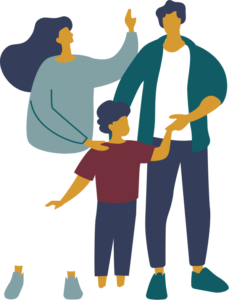
It is important to have realistic expectations for your child. This means understanding that they may not be able to do everything that you or other children their age can do. It is also important to remember that every child is different and will progress at their own pace.
Keep in touch with teachers and peers
It is important to keep in touch with your child’s teachers and peers. This will help you stay up-to-date on how your child is doing and what challenges they are facing. It will also allow you to provide support and assistance when needed.
Help them stay organized
Children with ADHD tend to be forgetful, lost, confused, and even lack organization as well as management. One way you can help your child is to establish a specific place for everything. This will help ease their anxiety and give them a sense of control. Also, break large tasks into smaller ones so they don’t feel overwhelmed. Lastly, use calendars or organizers to help them keep track of events and activities.
Break down tasks into smaller parts
Children with ADHD often have difficulty completing tasks. One way to help them is to break down the task into smaller parts. This will help them focus on one thing at a time and not feel overwhelmed. It will also help them see that they are making progress and that the task is not as daunting as it may seem.
Eliminate distractions
It is important to eliminate distractions when your child is trying to focus on a task. This includes things like turning off the television, putting away toys and having them work in a quiet area. Eliminating distractions will help your child focus on the task at hand and be more successful.
Provide structure
Children with ADHD often need more structure than other children their age. This means having set times for activities, rules that are consistently enforced, and clear expectations. Providing this type of structure will help your child feel safe and secure, and it will also help them stay on track.
Give them choices
Giving your child choices can help them feel more in control of their environment and their life. This can be done by allowing them to choose what they want to wear, what they want to eat, or even what activities they want to do. Allowing your child to make choices will help them feel empowered and may even help reduce some of their negative behaviors.
Keep Things Interesting
A child with ADHD can get bored easily. It’s important to keep things interesting by varying activities and adding some novelty. This will help your child stay engaged and may help reduce some of the symptoms of ADHD.
Take things one day at a time
ADHD can be a lot to deal with, both for you and your child. It’s important to take things one day at a time. This will help you avoid feeling overwhelmed and will allow you to focus on the positive.
Provide Positive Reinforcements
Positive reinforcements are a great way to keep your kids with ADHD engaged. These can include things like awards, privileges, rewarding good behavior, praise, acknowledgment, or even simple verbal praise. It is important to find what works best for your child and to use reinforcement consistently. Positive reinforcement will help your child feel good about themselves and their accomplishments. It will also help them want to continue behaving positively.
Make sure that they are challenged
Children with ADHD often become bored easily. It is important to make sure that they are constantly challenged to keep their attention focused. This can be done by providing new and interesting activities, varying the difficulty of tasks, and introducing new challenges regularly.
Avoid comparisons
It is important to remember that every child is different. Especially when your child has a neurodevelopmental disorder, such as ADHD. They are likely to learn, grow and develop at their own pace. So, avoid comparing your child to other children, especially siblings. It will only make them feel bad about themselves and could hinder their progress.
Provide emotional support
It is important to provide emotional support for your child. This includes things like listening to them, being patient with them, and providing encouragement. It is also important to let your child know that you love them and are there for them. Providing emotional support will help your child feel good about themselves and may help reduce some of the symptoms of ADHD.
Create a support system
Creating a support system is important for children with ADHD. This can include family, friends, teachers, counselors, doctors, or anyone else who can provide support and assistance.
Join support groups
Parenting a child with ADHD can take a toll on a parent’s mental health. It is important to seek out support from others who are going through the same thing. There are many online and in-person support groups available. This can be a great way to get advice, vent, and connect with other parents who understand what you are going through.
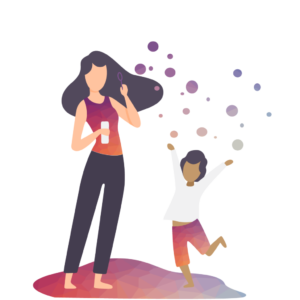
Parenting a child with ADHD can be difficult, but it is important to remember that you are not alone. These are just a few of the many strategies that you can use to help your child with ADHD succeed. It is important to remember that every child is different and what works for one child may not work for another. If you are struggling to find what works for your child, talk to their doctor or mental health professional. They can provide you with more ideas and help you create a plan that is tailored specifically for your child. With the right support and strategies, children with ADHD can succeed.
Other Treatment Options
There is no cure for ADHD, but there are treatments that can help people manage the symptoms. In addition to ADHD strategies for parents, there are other treatment options which can help in managing and reducing the intensity of symptoms.
- Stimulant medication – This type of medication helps to improve focus and concentration. It is the most commonly prescribed type of medication for ADHD.
- Non-stimulant medication – This type of medication is used to treat symptoms of impulsivity and hyperactivity. It is not as commonly prescribed as stimulant medication, but it can be effective for some people.
- Behavioral therapy – This type of therapy helps people learn how to manage their symptoms and improve their functioning.
- Psychotherapy – This type of therapy can help people deal with the emotional challenges that come with ADHD.
- Support group – This type of group can provide emotional support and practical advice for people with ADHD and their families.
- Educational accommodations – This type of accommodation can help people with ADHD learn and succeed in school.
If you are a parent of a child with ADHD, then it is important to talk to your doctor about the best treatment options for your family. There is no one-size-fits-all approach to treating ADHD, so it is important to find a treatment that works for you and your child.
Conclusion
ADHD is a disorder that can cause difficulty in paying attention, hyperactivity, and impulsivity. It is believed to be caused by a combination of genetic and environmental factors. There is no cure for ADHD, but there are treatments that can help people manage the symptoms. If you are a parent of a child with ADHD, then it is important to talk to your doctor about the best treatment options for your family.
For more information, please contact MantraCare. ADHD is a neurodevelopmental disorder characterized by difficulty in paying attention, hyperactivity, and impulsivity. If you have any queries regarding Online ADHD Counseling experienced therapists at MantraCare can help: Book a trial ADHD therapy session
